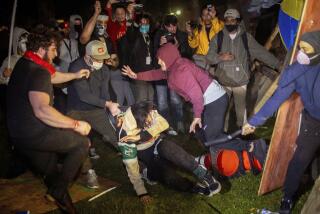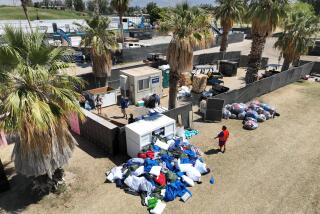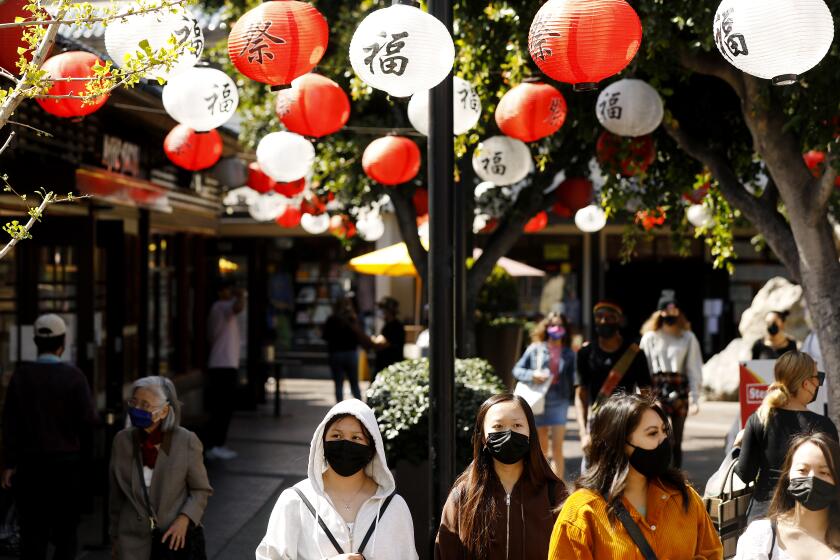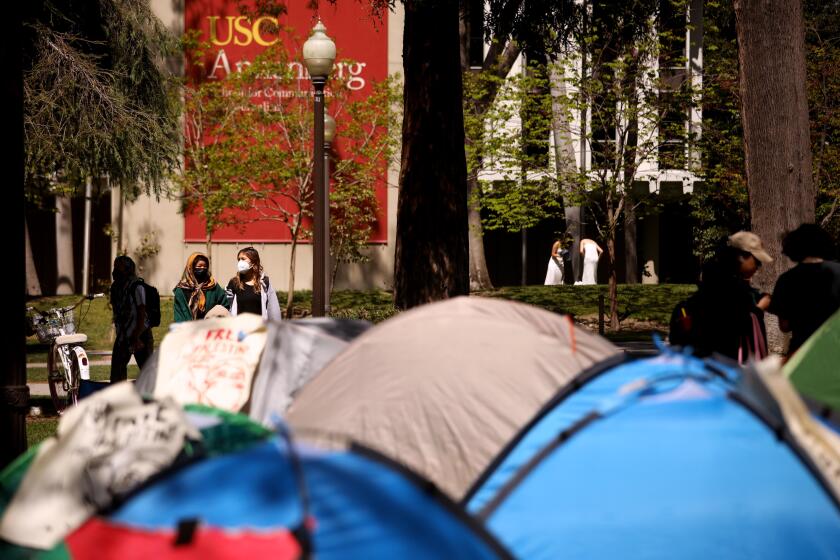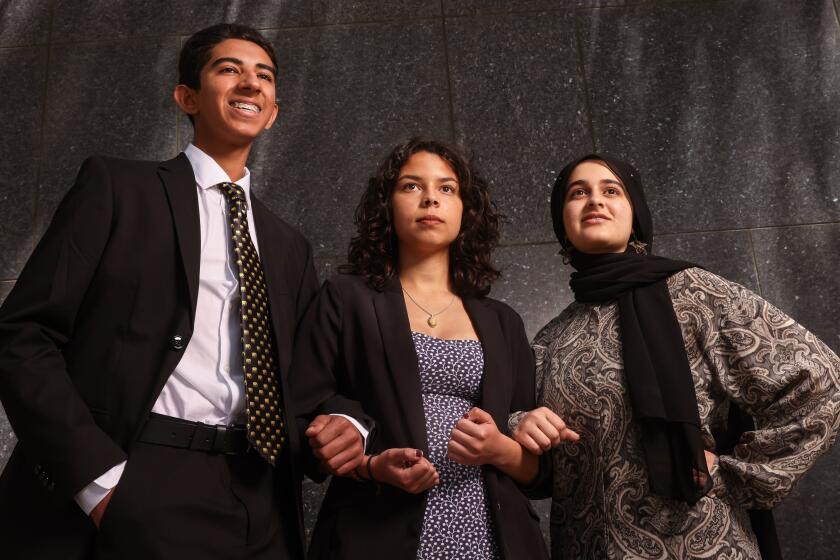O.C. Persian Festival Bridges Lives
At one end of the Orange County Fairgrounds, older Persian Americans relaxed on a spread of lush rugs listening to traditional music from their homeland.
Across the expanse, teenagers ambled toward the heavy beat of Persian pop pounding from a deejay’s speakers. Between the generations was a sea of tents teeming with the Iranian culture that unites them.
The ninth annual Mehregan Persian Festival began Saturday in Costa Mesa. The two-day event, organized by the Network of Iranian-American Professionals of Orange County, is expected to draw more than 20,000 people from Southern California’s large Persian community.
Organizers and visitors said the festival allowed them to re-connect with tastes, sounds and sights of the country they left behind. Admission is $20; children younger than 10 get in free.
“This is how I can speak to my forefathers,” said Ardeshir Anoshiravani, who is coordinating the festival’s cultural performances.
Mehregan is a harvest festival often compared to Thanksgiving in America. Anoshiravani’s volunteer crew recreated the court of a historic Persian leader, complete with statues, to reenact a traditional procession in which people from the country’s 28 provinces delivered gifts of nuts, grains and fruit.
Iranian Americans born in each of the provinces welcomed visitors into an arc of tents featuring the textiles, texts and spices of each region. The smell of cumin filled the air in the Kerman province tent, while women in colorful, elaborate dresses played music from the northwestern province of Kurdistan in another.
The event has taken on an added importance in recent years as tension has risen between the United States government and the Muslim clerics who have ruled Iran since the 1979 Islamic revolution, said organizer Hossein Hosseini.
“With so much negative news coming out of Iran, it’s important to have an opportunity to come together and say, ‘We have nothing to do with that -- here is who we are.’ ”
For Yvette Avanessian, whose daughter studies traditional Iranian dance, the festival offered a chance to strengthen her daughter’s connection to the country.
“She gets to know the history and the dance that is rooted in our past,” Avanessian said as she waited for daughter Evelyn to perform. “She was born in America, but I want her to know where she comes from.”
Students from Cal State Fullerton’s recently revived Persian student club echoed the sentiment.
“Our parents have experienced things we haven’t,” said club President Sadef Salout, who is studying the Persian language, Farsi, at school. “They were born there and feel something we can’t. We want to have a tie to what they feel.”
More to Read
Start your day right
Sign up for Essential California for news, features and recommendations from the L.A. Times and beyond in your inbox six days a week.
You may occasionally receive promotional content from the Los Angeles Times.

